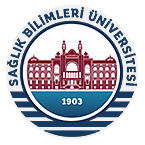ABSTRACT
Aims:
Prolotherapy is a regenerative treatment that induces the local inflammation response and has been used clinically for many musculoskeletal system disorders. Dextrose is the most common solution that is used for prolotherapy. Dextrose prolotherapy can be used as a complementary treatment for various musculoskeletal system disorders including low back pain. The aim of our trial is to assess the potential effectiveness of 5% dextrose injection for radicular low back pain resulting from lumbar disc herniation.
Methods:
We evaluated a total of 40 patients treated with 5% dextrose prolotherapy for radicular low back pain for one year. Of these patients, 20 patients were treated with only prolotherapy. The other 20 patients were treated with prolotheraphy and physical therapy. 5% dextrose solution is used for the treatment and the solution being injected to iliolumbar and transverse ligament insertion levels and at the facet level. We used Visual Analog Scale (VAS) 10 cm, Oswestry Disability Index (ODI) and Short Form-36 (SF-36) for the evaluation of pain, mobility, quality of life and functional status of the patients.
Results:
A significant reduction in pain was reported in all patients in both groups. The pain and disability scores significantly improved both in two groups at the 3, 12 and 52-week follow-up with no significant difference between the groups.
Conclusions:
Patients with radicular low back pain resulting from disc herniation can be treated effectively by using 5% dextrose prolotheraphy.



